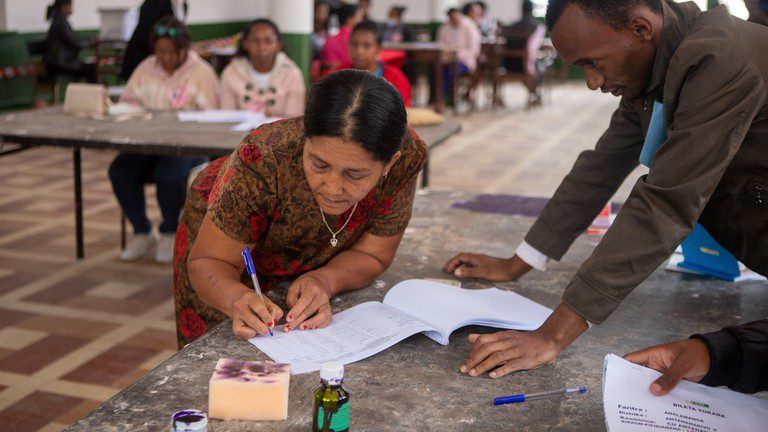Africa
Voting in Madagascar’s presidential elections comes to a close, despite being boycotted by certain groups

Because President Andry Rajoelina is French, there have been weeks of violent protests against his candidature.
On Thursday, the first round of Madagascar’s presidential elections came to an end, after weeks of violent demonstrations and boycotts by a number of opposition candidates due to alleged electoral irregularities.
The largest island nation in Africa allegedly held peaceful elections with low voter turnout, especially in opposition strongholds, and little security in the capital, Antananarivo.
Following many polling places being set on fire, officials in the capital implemented a midnight curfew prior to this Thursday’s elections.
Madagascar has a population of almost 30 million, according to official statistics, but only just over 11 million of them are registered to vote. Initial voter turnout was between 15% and 20% in areas allied with the opposition, while it was over 30% in ruling party strongholds, according to local election officials cited by Reuters on Thursday.
Ten out of the twelve opposition candidates withdrew from the race, denouncing President Andry Rajoelina’s candidature for a third term and calling for his disqualification due to his 2014 acquisition of French nationality.
The 49-year-old former DJ, Rajoelina, ascended to power in a 2009 coup but left her position as head of the transitional authority after almost five years. She was elected president in 2018. Following his official confirmation as a presidential contender, as mandated by the island nation’s constitution, he resigned in September.
READ ALSO: UN Requests Immediate Assistance for Malawi Cyclone Survivors
Opponents of the president argue that after becoming a naturalised French citizen, he ought to have renounced his Malagasy citizenship.
Rajoelina, however, disagreed, stating that any loss of citizenship required official government approval and that the constitution does not mandate that the head of state be a Malagasy national. He allegedly said that he learned French so that his kids might further their studies overseas.
The opposition became enraged when the constitutional court of the former French colony rejected attempts to declare Rajoelina’s candidature void due to his dual citizenship in September.
For more than six weeks, the opposition alliance had planned protests, most of which had descended into violence with numerous protesters being arrested and altercations with the police.
According to the AFP news agency, the administration claims that the protesters are driven by a “desire to overthrow power” and “sabotage the electoral process.”
Until “a fair election” is held, the opposition coalition has vowed to keep up protesting.
“We affirm that the fight goes on, and we won’t give up until we win,” the opposition declared in a statement that was obtained by Reuters late on Thursday.
The official election results have not yet been made public by the national electoral organisation.
